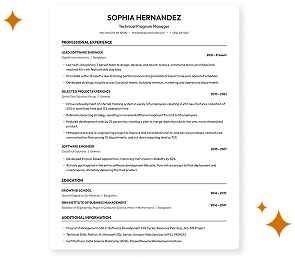In the journey of job hunting, interviews are valuable stepping stones—not just to land your dream role but also to learn, adapt, and improve. Even if you don’t make it to the next round, requesting feedback after an interview is one of the most impactful ways to enhance your skills. It shows a growth mindset and a willingness to improve, traits that professionals and hiring managers respect. Here’s how to do it right, with tips to stay ahead in today’s competitive interview landscape.
1. Timing is Everything
The first rule of requesting feedback: don’t rush it. If you’ve received a rejection, wait a day or two before reaching out to ask for feedback. This gives the recruiter time to focus on your request without the immediacy of the rejection lingering.
Pro Tip: If you haven’t heard back, always follow up politely after the decision deadline passes. Employers appreciate candidates who are proactive yet respectful in their communication.
Trending Tip: Silent Rejection Awareness Did you know? A recent trend in hiring is the silent rejection—when companies don’t notify candidates they weren’t selected. Always follow up post-interview to ensure closure, and take this
opportunity to ask for feedback.
2. Be Polite, Yet Precise
Your tone matters as much as your timing. Being professional and clear in your request for feedback ensures you come across as respectful and motivated. Start by thanking the interviewer for the opportunity and then phrase your request positively.
For example: Thank you for the opportunity to interview for the [role name] position. I truly valued the chance to learn more about your team. If possible, I’d greatly appreciate any feedback about my interview
performance to help me grow professionally.
Pro Tip: Always avoid demanding feedback. A professional approach builds bridges, even for future opportunities with the company.
3. Ask Smart, Specific Questions
Vague requests like, “Can you tell me where I went wrong?” are unlikely to yield helpful responses. Instead, focus on key aspects of the interview process and your qualifications.
Here are some great questions to ask:
– “Are there any areas of my experience or skills you think I could improve on?”
– “Was there anything in my interview that you felt could have been stronger?”
Pro Tip: Ask about improvement areas in a way that keeps the conversation constructive. This shows your commitment to learning.
Trending Tip: Behavioral Feedback With behavioral interviews becoming the norm, recruiters now assess how candidates frame their past experiences. If you suspect this tripped you up, ask if your examples could have been more detailed or impactful.
4. Show Receptiveness and Gratitude
When you ask for feedback, ensure the interviewer knows that their insights will be valued. No one wants to share feedback with someone who seems defensive. Express your willingness to improve and your genuine interest in their perspective.
For instance: I truly value feedback as part of my professional growth and would greatly appreciate any insights you can share.
5. Gracefully Accept Feedback
If feedback is offered, whether positive or constructive, accept it with gratitude. Avoid rebuttals or defensiveness, even if you disagree. Remember, this is an opportunity to gain an outside perspective, which might help you succeed in future interviews.
Breaking down how to Ask for Feedback After an Interview
- Use Email : Avoid calling—email gives the hiring manager time to respond thoughtfully.
- Express Gratitude : Thank them for their time and the opportunity to interview.
- Be Polite : Maintain a professional tone, avoid questioning their decision.
- Be Brief : Keep your message concise, a few short paragraphs are enough.
- Act Quickly : Send your email within a day or two after receiving the decision.
- Be Specific : Include the job title and ask focused questions about your performance.
- Show Interest : If genuine, mention that you admire the company and its culture.
Final Thoughts
The job search process can sometimes feel like a rollercoaster, testing both your confidence and resilience. It’s disheartening to send countless resumes without a response, and even more so to lose out on a position after an interview. But rejection doesn’t have to be the end of the road—instead, it can become a stepping stone toward growth.
By seeking feedback after an interview, you transform a setback into an opportunity for self- improvement. Approaching this with politeness, humility, and the understanding that feedback isn’t guaranteed, sets the right tone and keeps the door open for future learning. Embrace any constructive criticism you receive, no matter how brief, and use it as a guide to make an even stronger impression in your next interview.
Remember, the path to success often includes moments of reflection and growth. Every interview is a chance to learn, and with the right mindset, each experience can bring you closer to achieving your career goals. Keep moving forward—your next opportunity could be just around the corner!







